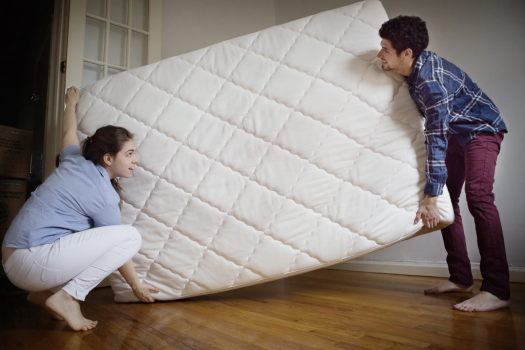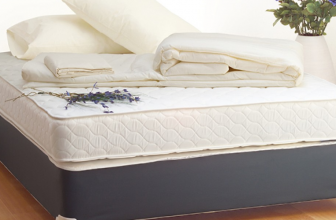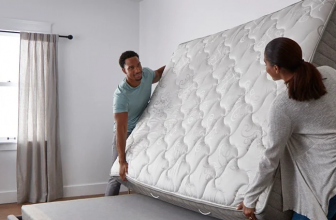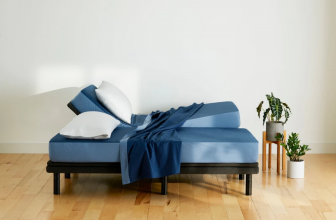Brief: How Often Should You Replace Your Mattress
- General Recommendation:
- Replace mattresses every 7-10 years.
- Mattress Lifespan by Type:
- Memory Foam: 10-15 years.
- Latex: 15-20 years.
- Innerspring: About 10 years.
- Hybrid: Up to 10 years.
- Pillow-Top: 5-8 years.
- Signs to Replace Mattress:
- Visible wear and tear.
- Noisy springs.
- Presence of stains.
- Body impressions.
- Muscle stiffness.
- Allergies or asthma worsening.
- Sagging.
- Maintenance Tips:
- Regular vacuuming and dusting.
- Exposure to sunshine and fresh air.
- Rotation of the mattress.
- FAQs:
- Signs for replacement include lumpy feel, sagging, bottoming out, or persistent discomfort.
- Best mattress type depends on individual needs and sleep style.
- Replacing versus adding a topper depends on current mattress condition.
- Benefits of replacing include improved comfort, support, sleep quality, and health.
- Consider the same bed frame if dimensions match the new mattress.
- Average cost ranges from $200-3000.
- Buying preference (in-store vs. online) depends on individual choice.
- A mattress protector is recommended.
- Choice between firmer or softer mattress depends on sleeping style.
- Bed frame type matters for support.
- Alternatives include mattress toppers, pads, or covers.
- Old mattresses can often be recycled.
- Key Takeaways:
- Regular replacement of mattresses is crucial for sleep quality and health.
- Lifespan varies by mattress type.
- Signs of wear, comfort issues, or health reactions indicate need for replacement.
- Maintenance and proper care can extend mattress life.
Many people neglect their mattresses, but it is important to care for this investment like any other furniture item in your home. You should replace your mattress every 7-10 years.
That is why a mattress that has not been cared for or replaced can lower the quality of your sleep and lead to many health problems such as back pain, snoring, and other conditions. In addition, if you don’t take care of the inside of your mattress, there is a chance that it will start to sag, which will leave you with less space in the bed. To know how often you should replace your mattress, read on!
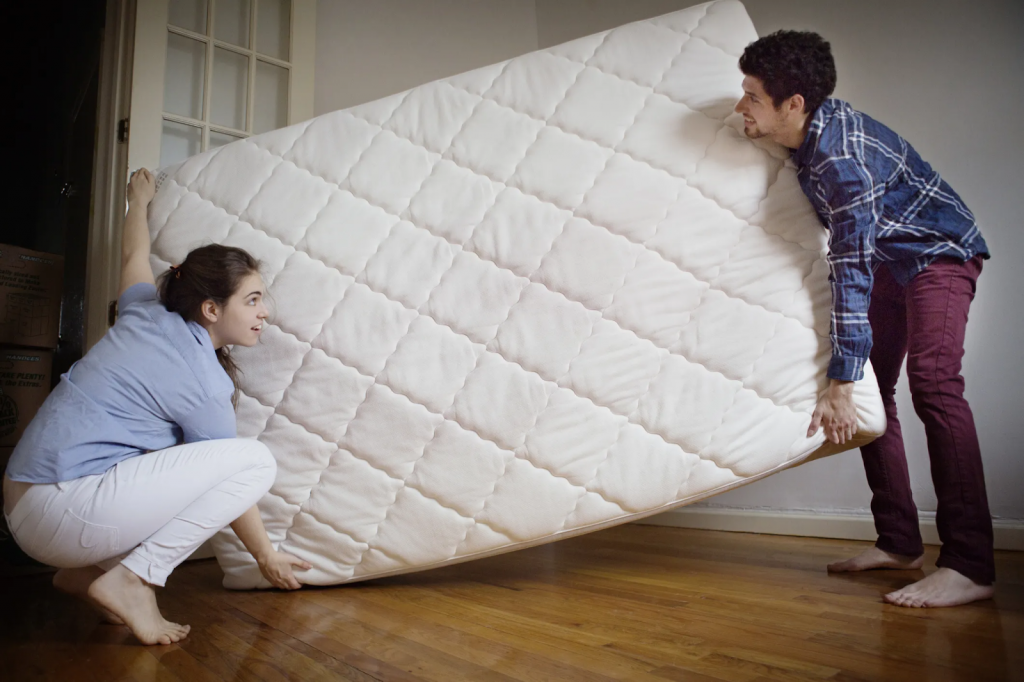
This article will go through reasons why it’s important to replace your mattress regularly and seven signs that indicate you should do so now. We’ll also provide some tips for making your current mattress last as long as possible.
Mattress Lifespan Depending On Its Type
Each mattress type has its lifespan. It depends on materials used inside and outside the product. Below there’re common mattress types and the approximate lifespan of each product.

Memory Foam
Memory foam is one of the best types of mattresses to use. In addition, these types of mattresses have a lifespan of as long as 10-15 years and are resistant to body impressions which means this type of mattress will not become softer overtime.
Latex
Latex mattresses also last between 15-20 years, but they do have a problem with absorbing heat, leading to sleeping problems resulting from their temperature-regulating properties. This type of mattress is also more expensive than foam mattresses, and so it may not be an option for those looking for something less expensive.
Innerspring
Innerspring mattresses last about 10 years before they need to be replaced or repaired due to sagging. Springs in this mattress type can lose their ability to bounce back if a solid foundation does not support them, so make sure your bed frame is strong and sturdy before purchasing this mattress type.
Hybrid
If you are looking for something that provides the best of both worlds, then hybrid mattresses are an excellent option for you! They can last as long as 10 years and provide strength similar to innerspring mattresses while at the same time providing pressure point relief found in high-quality memory foam mattresses.
Pillow-top
Pillow-top mattresses are not meant to last for 25 years like other types of mattresses on the market today. Even with proper care, they can become lumpy and sag easily due to the material used to make them. This mattress type lifespan is between 5 to 8 years.
Why Replace Your Mattress
After you have purchased and used a mattress for nearly 10 years, it is time to think about replacing it rather than repairing it when something goes wrong. This is because stains and wear and tear on a mattress can cause it to lose its ability to provide support correctly, resulting in back pain and loss of sleep. In addition, this type of mattress can become soft or lumpy, which can cause you to change your position while you are sleeping, resulting in strain on the body.

7 Signs You Should Replace Your Mattress
If you notice any of the following seven signs, it is time to replace or repair your mattress.
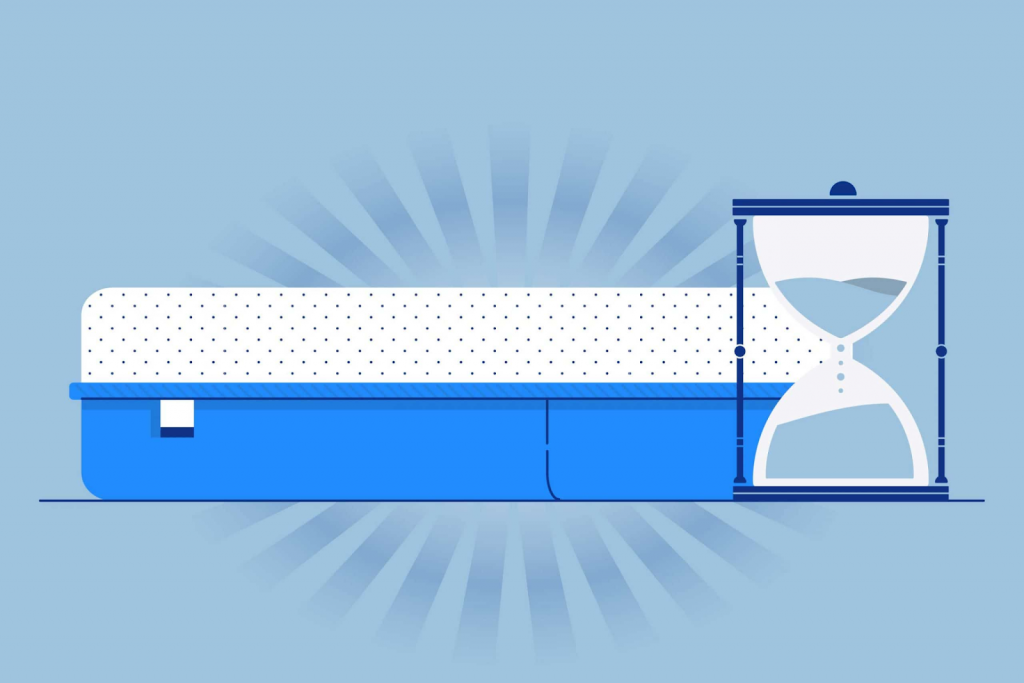
Wear And Tear
Any damage such as tears or stains on a mattress indicates that it is no longer providing proper support for your body, resulting in discomfort while you are sleeping. If you notice any of these signs, it is a good sign to consider replacing your mattress and even taking care of it as needed.
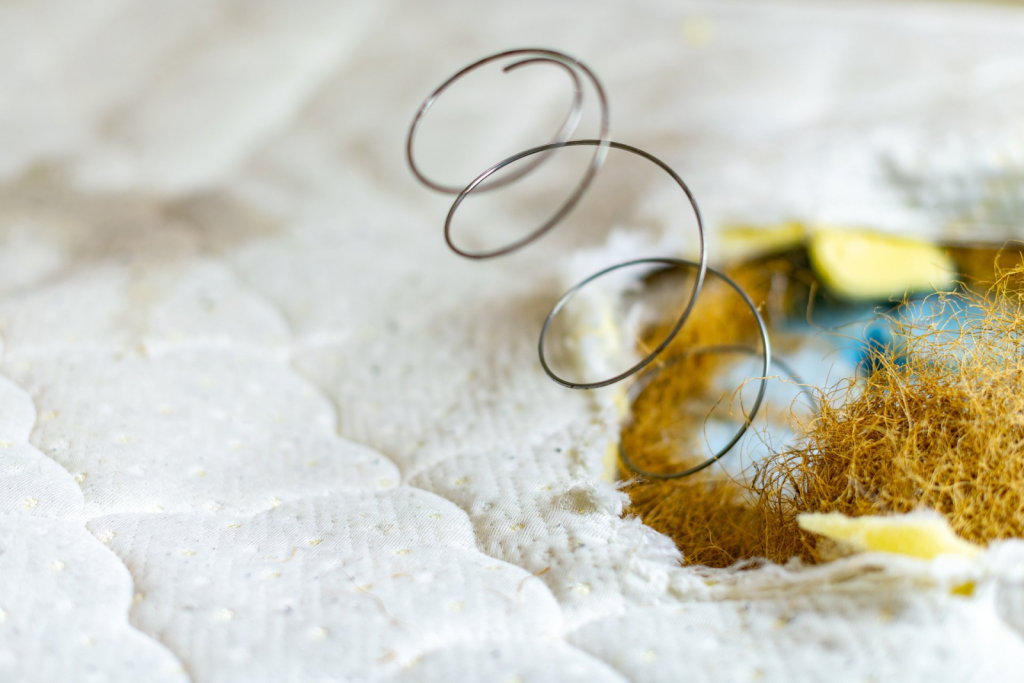
Noisy Springs
If you notice that your mattress is making a lot of noise when the springs move, this can indicate some wear and tear on the spring or lack of support for the mattress itself. If you hear any unusual noises while you are sleeping, this means that something is not quite right with your bed, and it may be time to replace it.
Stains
Any stains on your mattress can indicate that it is no longer in good condition. If you notice any stains, then it could be time to look for a new replacement. Besides, any new stains could indicate mold growth, which is unsanitary and very unhealthy for the sleeper.
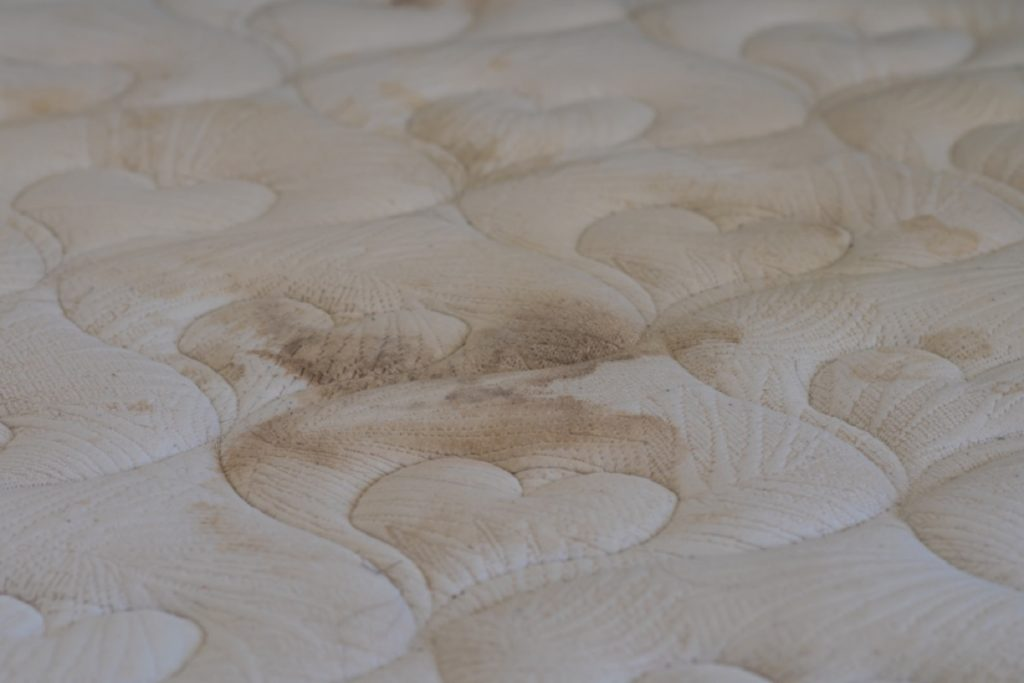
Body Impressions
If you notice body impressions in your mattress, this means that there are areas where the individual sleeping bodies do not fit properly into the bed and get tossed around during the night, causing back pain and discomfort. The problem with body impressions is that they can be challenging to fix and can only be corrected by replacing your mattress.
Muscle Stiffness
If you have a mattress that does not allow you to move or turns you into a rock, then this means that it is time to consider replacing it with something new. If you notice any stiffness in your muscles while sleeping, this could indicate a mattress that is not suitable for your body.
Allergies Or Asthma Worsen
If you have a mattress causing allergies or asthma to worsen when you sleep on it, then this is a sign that your bed is no longer in good condition and needs to be replaced immediately. Suppose your body reacts poorly towards an old mattress. In that case, you will find that you will be able to breathe much easier and experience fewer allergy symptoms when you have a newer, better quality mattress.
Sagging
Sagging in a mattress means that the springs or lack of support have stretched out the bed to the point where it requires you to change your position while you are asleep. Many people will continue to use their saggy mattress because they think that sagginess comes with age, but this is not true! Sagging occurs when a bed has lost its shape and gives out, causing your body to rest in an unnatural position.

Your Mattress Becomes Uncomfortable
It is not uncommon for a person to purchase a mattress and get used to it before realizing that it is no longer comfortable or providing the support they need. However, if you find that your old mattress no longer feels as comfortable or is causing discomfort in any way, then it may be time to replace it with a new one.
If you have an uncomfortable night of sleep, this will affect your day’s quality and even your entire life, so make sure that your mattress is always providing you with comfort.
You Gained Or Lost Weight
If you have lost weight and your old mattress is not supporting you correctly, you will start developing aches and pains all over your body. It’s hard to fix this problem once it has happened, but it can easily be prevented with a comfortable, supportive mattress.
Tips How To Make Your Mattress Last Longer
You can help your mattress last longer by following these simple tips:
- Vacuum and dust – regularly dusting and vacuuming your bed will help it last longer as it will clean off any build-up of dirt and grime.
- Sunshine and fresh air – to prevent mold from growing on your mattress, you should leave it out in the sunshine for a few hours a week or open up the windows to get some fresh air circulating the room.
- Rotate – if you can rotate your mattress about 90 degrees every month or two, this will also help it last longer.
FAQ
How often should I replace my mattress?
It depends on the quality and material of your mattress and how much you use it. Generally, mattresses should be replaced every 7-10 years. However, for a firmer mattress, it is recommended to replace it every 6-8 years, as it will wear out quicker due to the high level of support it provides.
What are the signs that my mattress needs replacing?
Some signs that indicate that your mattress needs replacing are if it’s lumpy, sagging, bottoming out, or has permanent indentations. If you find that you have an increasingly difficult time sleeping on your mattress or you wake up with aches and pains, it’s time to replace it. Also, if your mattress smells musty or is older than eight years, it’s a good indication that it’s time for a new one.
What is the best type of mattress to replace my old one with?
The best type of mattress to replace your old one with depends on your individual needs, preferences, and what type of sleep style you have. For side sleepers, for example, a softer mattress with more padding will provide better pressure relief than a firmer mattress.
Is it better to buy a new mattress or a mattress topper?
It depends on the condition of your current mattress and the comfort level that you are looking for. If your mattress is in good condition and you just want a more comfortable sleeping experience, then a mattress topper may be a better option. If your mattress has lost its support or is in poor condition, then you should invest in a new mattress that better meets your comfort needs.
What are the benefits of replacing a mattress?
Replacing a mattress can provide several benefits, including improved comfort, better support, improved sleep quality, and improved overall health. A new mattress can help to reduce aches and pains, improve blood circulation, reduce allergies and asthma symptoms, and improve overall energy levels.
Should I replace my mattress if I am not having any sleeping issues?
If you are not having any sleeping issues, then it may not be necessary to replace your mattress. However, if your mattress is over 8 years old and has lost some of its comfort and support, then replacing it may provide a better sleep experience.
Can I use the same bed frame if I replace my mattress?
Yes, you can use the same bed frame if you are replacing your mattress. Make sure to measure the size of your existing mattress to ensure that you are purchasing a mattress of the same size.
What is the average cost of a new mattress?
The average cost of a new mattress can vary depending on the size and material. Generally, the cost of a new mattress can range from $200-3000.
Is it better to buy a mattress in-store or online?
This depends on your individual preferences, budget, and what type of mattress you are looking for. Buying a mattress online can be more convenient since you can shop from the comfort of your own home; however, it can be difficult to test out the mattress before making a purchase.
Should I buy a mattress with a mattress protector?
Yes, it is recommended to purchase a mattress with a mattress protector, as it can help to protect your mattress from spills, stains, dust, and allergens. It can also help to extend the life of your mattress, as a protector can protect it from normal wear and tear.
Is it better to buy a firmer or softer mattress?
The best type of mattress depends on your individual preferences, needs, and sleep style. Generally, side sleepers will benefit from a softer mattress, while back and stomach sleepers should opt for a firmer mattress for better support.
Does the type of bed frame matter when replacing a mattress?
Yes, the type of bed frame does matter when replacing a mattress. Make sure to choose a bed frame that is suitable for your mattress and offers enough support for the mattress.
Are there any alternatives to replacing a mattress?
Yes, there are alternatives to replacing a mattress that can help to extend the life of your existing mattress, such as mattress toppers, mattress pads, or mattress covers. Although these alternatives can provide extra comfort and support, they are not a substitute for a new mattress.
Is it possible to recycle an old mattress?
Yes, it is possible to recycle an old mattress. Many mattress manufacturers offer recycling services, or you can contact your local waste collection agency to inquire about mattress recycling options.
How do I dispose of an old mattress?
The best way to dispose of an old mattress is to contact your local waste collection service or mattress recycling service. Never put a mattress in the trash, as this can be hazardous to the environment.
You may want to revisit some parts of the article

